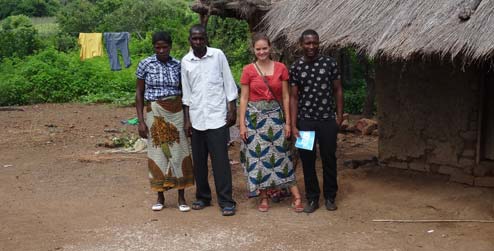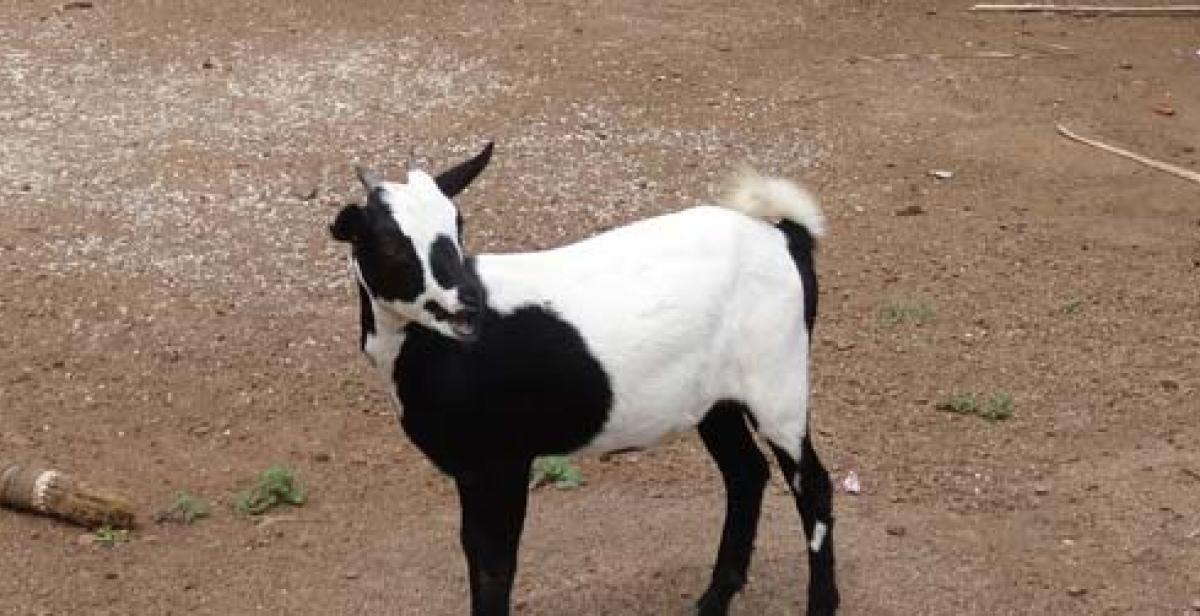Tamara is one of 16 goats that were donated to four support groups as part of cycle 4’s special project. Now, that cycle 5 is quickly drawing to an end, the team has gone for a second follow up to see how the previous cycle’s project is going.
We travelled to Ngabu, which is about an hour’s drive away from where we are based. So far in Ngabu, the team has met four support groups to which COWLHA (Coalition Of Women Living with HIV and AIDS) women belong. Last cycle, the team used their special project budget to initiate a pass on a goat project with them.
Our pass on goats project involved giving each support group four she goats that were of breeding age. The goats were given to the COWLHA women to look after as a group. Once a goat produces offspring they select a beneficiary amongst themselves who will receive the first goat. The beneficiary’s first kid is passed on to another beneficiary. The second beneficiary’s kid will be passed on to another beneficiary, and so on. Any second kid born to any goat will belong to the initial beneficiary. Any he goats born will be swapped with the butcher or dealers for a she goat.
Our aim was that the four goats would be kept within a single khola (pen) and the COWLHA women would jointly feed and care for them. However, due to an increase in goat theft, three of the groups took the initiative to separate the four goats between themselves so that if one was stolen they would still have three.

Team Leaders, Amy Stops and Jonnex Chiwaya, visiting Progression ICS cycle 4’s pass on goats project.
We visited three support groups at their home villages to see some of the goats (the road to the fourth was impassable due to the rain). Two of the groups live far from the Ngabu Boma (centre) and one on the border of Mozambique. To reach the market, ARV clinic or to participate in joint support group meetings, the women must travel hours. This is not the first time that our eyes have been opened to this but it certainly does not minimize the situation.
The goats all look very healthy and well cared for. Nearly all of the goats are pregnant now which means that they will have already doubled their numbers within a couple of months.
From our feedback, the groups have faced very few challenges with the project and things seem to be moving smoothly. The groups have put together goat committees that monitor the progress and ensure that the members looking after the goats are doing so well. Additionally, they work together to identify COWLHA women that are most interested in participating in support group work to be the first beneficiaries.
For Jonnex and I, it was great to see that the project our last team put together is going so well. Especially after receiving such positive feedback from the women. A member of the Nthandizi support group wanted to thank Progressio ICS and COWLHA for giving them goats as it was unexpected, ‘different organisations promise but don’t deliver, so we are very happy that Progressio volunteers delivered.’ They have agreed that after they are able to pass on a goat to each member, the rest will remain ‘group property’, so that any profits made can be used to benefit them all.
The special project is a great initiative for volunteers to give something to the communities they are working with. As COWLHA and Progressio are not aid organisations, there is not much opportunity to donate or initiate such a project. A joint income generating project such as this encourages group participation and through the concept of ‘pass on’ will hopefully create long term sustainable support for the women. Due to the recent flooding, about 1000 COWLHA women have been affected to different degrees. A few goats might not change their worlds, but from the feedback that we have been given, the project has opened the door to new possibilities.
Photography by ICS volunteer Chawezi Sichinga



